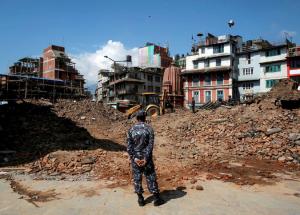News Information
- NEWS_POSTED_BY: Haiti Place
- NEWS_POSTED_ON: May 01, 2015
- Views : 773
- Category : General News
- Description :
- Website : http://www.nytimes.com/2015/04/28/magazine/how-not-to-report-on-an-earthquake.html?_r=1
Overview
- s of Tuesday morning, exactly three days have passed since a 7.8-magnitude earthquake shook Nepal, killing thousands and leaving millions in need of help. In disaster response, the end of the first 72 hours is often considered an inflection point: the unofficial moment when the most acute phase passes, the odds of finding trapped survivors plunge and the relief effort tends to really pick up steam.
Three days into a crisis, roads and airports are often reopening, and outside responders and journalists are arriving in droves. The decisions made at this time can determine the course of the response. A misstep now can have ramifications lasting years, even decades.
I know this because I lived through a moment of just this sort five years ago, in Haiti. I was in Port-au-Prince on Jan. 12, 2010, when a powerful quake rippled outward from an epicenter 15 miles from the capital. In 40 seconds, the shock waves, according to some estimates, literally decimated the population, killing 100,000 to 316,000 people in an overcrowded, overbuilt metropolitan area that was home to more than three million. Governments and aid groups mobilized cargo planes and ships, deploying thousands of soldiers, search-and-rescue teams and medical responders. I was the lone correspondent in the country’s lone full-time foreign news bureau when the quake hit, but I wasn’t on my own for long. By the 72-hour mark, hundreds of reporters — if not more — had joined me in town, beaming images and accounts of the destruction around the world.
Time seemed to stop during the earthquake, and only gradually picked up speed in the days that followed. The first night felt as if it would never end. Aftershocks roiled the ground. People were scouring the rubble for loved ones and neighbors, but the quake had hit in the late afternoon, and in a country with little infrastructure and electricity, it was impossible to continue the search once darkness fell. Nearly everyone who could be was outdoors that night, many of them singing and praying, waiting to see if help would come from outside.
It did, though slowly at first. A trickle of aid convoys arrived overland from the Dominican Republic the next morning. A United States military advance team landed at the damaged airport and took over its operations, setting up an emergency air-traffic-control system.
Read more here >>
